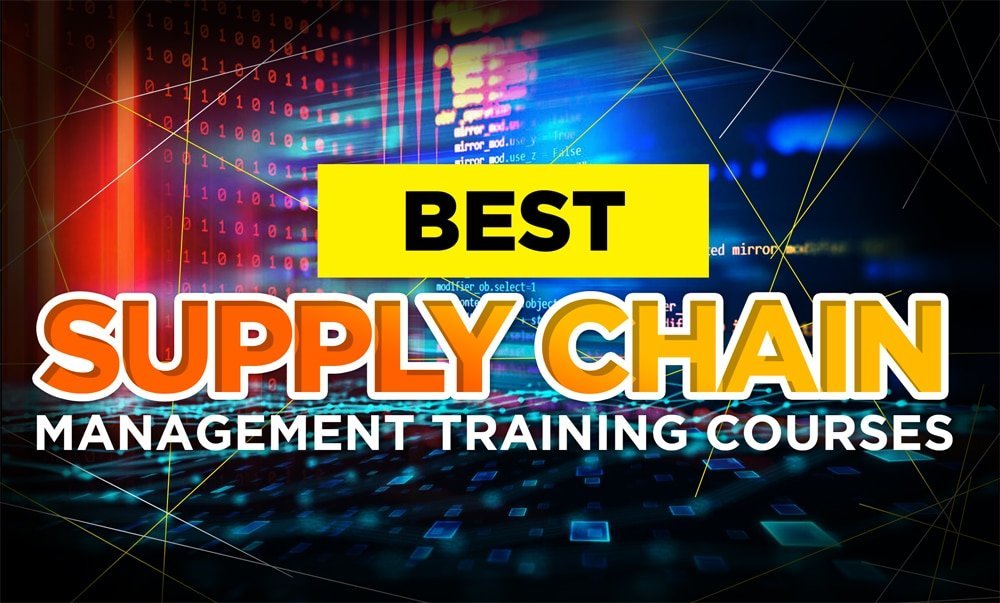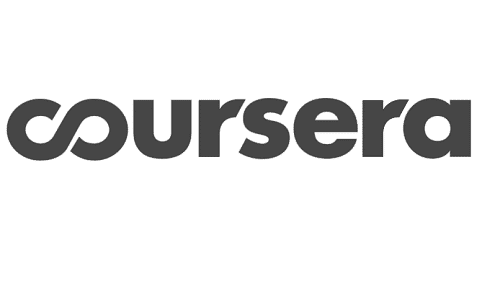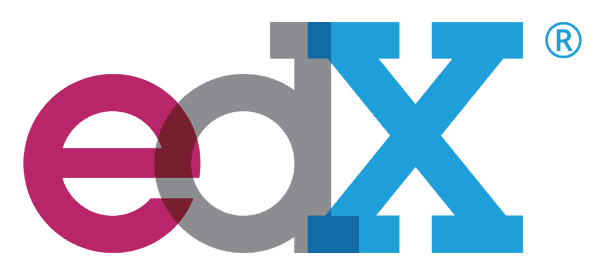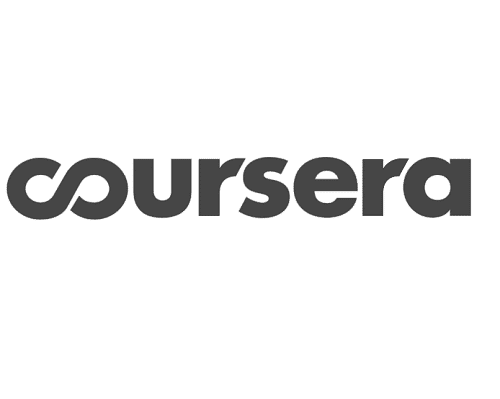
Are you a supply chain manager or professional looking to deepen your understanding of this critical business function? Supply chain management (SCM) is a rapidly evolving field with increasing complexity, requiring professionals to stay abreast of new methodologies, technologies, and global market trends. Today’s SCM professionals are tasked with managing logistics, optimizing inventory, and navigating global supply chain disruptions while ensuring efficiency and cost-effectiveness. Given the strategic importance of SCM in achieving organizational success, effective supply chain management training and certifications are essential.
Investing in training courses not only enhances your practical knowledge but also positions you as a more competitive candidate in the job market. With a diverse array of learning options available, from online courses to intensive workshops, you have the opportunity to tailor your education to your specific needs and career goals. However, with the overwhelming number of courses available, selecting the best one can be a daunting task.
Key Takeaways
- Understanding the evolving landscape of supply chain management is crucial for success in this field.
- Effective training and certifications can significantly enhance your knowledge and marketability.
- Selecting the right course involves considering your specific career goals, the course content, and the credibility of the institution offering it.
- This guide compares five top SCM training programs, making it easier for you to choose the one that best meets your needs.
In this guide, we’ll review five top-tier supply chain management training programs and compare their key features, content, and benefits, providing you with insights that can guide your decision-making process. Whether you’re a seasoned professional seeking to upskill or someone new to the field aiming to establish a strong foundation, we’ve got you covered.
Who Can Benefit From These Courses?
Supply chain management (SCM) is an intricate field that touches multiple industries and roles, from logistics and procurement to technology and risk management. As the field continues to evolve, the demand for professionals with specialized skills is growing, and the right course can make all the difference. Below, we break down the various groups of professionals who can benefit from SCM courses, whether you’re just starting out or looking to refine advanced skills.
Newcomers to SCM
If you’re just beginning your career in supply chain management, these courses offer a comprehensive introduction to the core principles of the field. You’ll learn about critical concepts like logistics, procurement, and inventory management, which are foundational for any SCM role. Entry-level courses often include hands-on exercises that simulate real-world supply chain challenges, helping you apply theoretical knowledge in practical settings. These programs are perfect for recent graduates or professionals transitioning from other fields, offering the basic knowledge needed to understand how supply chains function and how different parts work together to drive business success.
Mid-Level Professionals
For those with some experience in SCM, these courses offer an opportunity to upskill and stay competitive in a rapidly changing environment. Mid-level professionals can learn about the latest trends and technologies shaping the field, such as sustainable supply chain practices, AI-driven automation, and advanced analytics. These courses often delve into risk management strategies, helping you to mitigate disruptions caused by factors like global pandemics, trade wars, or fluctuating consumer demand. You’ll gain the skills necessary to streamline operations, improve efficiency, and position yourself for promotions into more senior roles.
Specialists and Managers
Supply chain managers and specialists already overseeing large, complex operations can also gain a lot from these programs. Advanced courses focus on the leadership skills required to manage global supply chains and incorporate cutting-edge technologies like machine learning, blockchain, and robotic process automation (RPA). These courses can help leaders refine their strategic thinking and decision-making skills, with an emphasis on optimizing supply chain networks for cost-effectiveness and agility. Whether you’re managing international logistics, coordinating with multiple suppliers, or dealing with compliance across different regulatory frameworks, you’ll find these courses valuable in addressing the challenges faced by global enterprises.
IT Professionals
Many modern supply chains rely on technology, especially in manufacturing, retail, and healthcare. Courses focused on software tools like SAP, Oracle, and other Enterprise Resource Planning (ERP) systems greatly benefit IT professionals in supply chain roles. If you work in system implementation, data management, or software acquisition, understanding supply chain technology enhances your ability to deliver tech solutions that meet operational goals. Cybersecurity specialists also gain from courses covering software supply chains, as securing digital assets and ensuring compliance are critical.
These courses cater to a wide range of professionals. They offer foundational knowledge for newcomers and advanced strategies for specialists. Whether you want to stay ahead of tech trends or deepen your understanding of global supply chains, there’s a course designed for your career goals.
Let’s dive into the five best supply chain management training courses for 2026.
Coursera Supply Chain Management Course

Coursera’s Supply Chain Management Specialization, in partnership with Rutgers University, provides a comprehensive, fully online program that delves deep into the complexities of global supply chains. This course is tailored for learners at all stages of their careers, offering a clear and structured path to gaining valuable supply chain management skills that are in high demand in today’s global market.
Course Structure and Content
The program consists of five courses, each focusing on a key aspect of supply chain management:
- Logistics: Explore how goods are moved efficiently from suppliers to consumers, emphasizing transportation, warehousing, and distribution strategies.
- Operations: Learn the intricacies of supply chain operations, including demand forecasting, production planning, and inventory control.
- Planning: Gain insight into the importance of strategic supply chain planning to optimize resources and reduce costs.
- Sourcing: Understand procurement strategies and supplier relationship management, critical for acquiring materials at the right price and quality.
- Management Strategy: Develop skills in creating and executing supply chain strategies that align with broader business goals.
Each of these courses is taught by a Rutgers University associate professor, ensuring high-quality academic instruction grounded in practical application. The specialization is designed to provide a solid foundation in key supply chain functions while preparing learners for real-world challenges.
Flexible and Self-Paced Learning
One of the standout features of this Coursera specialization is its self-paced format, making it ideal for working professionals or students with busy schedules. You can tailor the learning experience to fit your timeline, and there is no set deadline for course completion. The program includes around five hours of video content, which comes with subtitles in multiple languages to cater to a global audience. In addition to video lectures, the program offers:
- Readings that supplement course videos
- Practice quizzes to reinforce learning
- Graded quizzes and assignments to track progress
The specialization culminates in a hands-on capstone project, which allows you to apply everything you’ve learned to a practical, real-world problem. This project is a great opportunity to showcase your skills and build a portfolio that can be presented to future employers.
Certification and Advanced Learning Opportunities
Upon successfully completing the specialization and its capstone project, learners earn a professional certification from Rutgers University. This certification is recognized globally and can help boost credibility in the supply chain industry. It can be shared on platforms like LinkedIn to enhance one’s professional profile.
For those interested in continuing their education beyond this specialization, Coursera and Rutgers also offer the Supply Chain Excellence MasterTrack® Certificate, an advanced program that dives deeper into high-level supply chain topics and provides a more rigorous academic challenge.
Estimated Time Commitment and Success Rate
The specialization typically takes about six months to complete if you dedicate approximately three hours per week to the course materials. However, the flexible nature of the program allows learners to move at their own pace, speeding up or slowing down depending on personal commitments.
The outcomes of this course have been impressive:
- 67% of graduates reported securing a new job or promotion after completing the program.
- 22% of participants received a pay raise as a direct result of their new supply chain expertise.
This strong success rate highlights the value of the Coursera-Rutgers partnership and the effectiveness of this program in helping learners advance their careers.
Enrollment and Financial Aid
Coursera offers free enrollment, and you can explore the program through a seven-day free trial. After this trial, learners can continue their studies by subscribing to Coursera. It’s important to note that if you decide to cancel your subscription after the trial period ends, Coursera does not offer refunds. However, financial aid is available for those who qualify, making this program accessible to a wider range of learners.
Who Should Take This Course?
This specialization is an excellent choice for anyone looking to enter or advance in the supply chain field. It provides a solid grounding in all key areas of supply chain management and offers practical, actionable insights that can be applied in various industries. Additionally, it’s well-suited for professionals who interface with supply chain teams and want to gain a deeper understanding of how supply chains function to improve collaboration and decision-making within their organizations.
It provides the foundational knowledge needed to start a career in supply chain management for beginners, while for experienced professionals, it serves as a valuable refresher or a stepping stone to more advanced studies.
Bottom Line
The Coursera Supply Chain Management Specialization, offered in partnership with Rutgers University, provides a comprehensive online program designed for learners at all levels. It covers essential topics such as logistics, operations, planning, sourcing, and management strategy. The self-paced format allows flexibility for working professionals, making it easier to balance studies with other commitments. Participants can earn a globally recognized certification upon completion, enhancing their career prospects. The program also boasts a strong success rate, with many graduates reporting job promotions and pay raises after finishing the course.
Pluralsight Supply Chain and Software Acquisition Training

Pluralsight offers a specialized training course titled CSSLP®: Supply Chain and Software Acquisition, designed to equip professionals with essential knowledge about security controls necessary when outsourcing software development or purchasing software from vendors. This course is particularly relevant in today’s digital landscape, where secure software acquisition is crucial for maintaining the integrity of business operations and protecting sensitive data.
Course Structure and Content
The course focuses on the eighth and final domain of the Certified Secure Software Lifecycle Professional (CSSLP®) certification, which emphasizes the importance of security throughout the software acquisition process. Key topics covered include:
- Understanding Security Controls: Learn why implementing security measures is vital when collaborating with third-party vendors for software development.
- Vendor Software Development Processes: Gain insights into the typical software development methodologies employed by vendors, including Agile and DevOps practices, and how these impact security.
- Maintaining Vendor-Created Software: Explore best practices for the ongoing management and maintenance of vendor-produced software, including monitoring security vulnerabilities and ensuring compliance with security standards.
This structured content helps participants build a comprehensive understanding of the role a Certified Secure Software Lifecycle Professional plays in software acquisition, especially within the context of supply chain management.
Flexible Learning Format
The CSSLP® Supply Chain and Software Acquisition course includes 45 minutes of video content. It is concise and packed with relevant information. This course targets an intermediate audience. Participants should already understand software acquisition and security principles. The video lectures come with additional resources and study materials. These enhance the learning experience and aid in exam preparation.
This course is part of a broader CSSLP® program offered by Pluralsight. It provides a thorough overview of all eight domains of the CSSLP® certification. This holistic approach prepares learners for the CSSLP® exam. It helps them grasp the interconnected aspects of secure software acquisition more easily.
Certification Preparation and Outcomes
Completing the CSSLP®: Supply Chain and Software Acquisition course is a crucial step toward obtaining the CSSLP® certification. Employers in the tech and software industries increasingly seek this certification, which validates a professional’s expertise in securing software throughout its lifecycle and makes it a valuable addition to any resume.
Pluralsight’s course structure aligns with the CSSLP® exam requirements. It equips learners with the knowledge and skills they need to succeed. The course also encourages participants to engage with additional resources and courses in the Pluralsight library, which helps deepen their understanding of related topics.
Pricing and Subscription Options
Access to this course is provided through a subscription to the Pluralsight course library, which offers two pricing tiers:
- Standard Plan: $29 per month
- Premium Plan: $45 per month
Both plans provide access to a wealth of courses across various subjects, including software development, cybersecurity, and data science. Pluralsight also offers a free ten-day trial, allowing prospective learners to explore the course library and assess whether the platform meets their learning needs.
Who Should Take This Course?
This course is tailored for professionals who already possess an intermediate level of knowledge in software acquisition and are looking to deepen their expertise, particularly in the context of supply chain management. It is ideal for individuals seeking to enhance their skill set with the CSSLP® certification, which is highly regarded in the fields of software security and risk management.
The course also benefits experienced professionals who wish to ensure that they are up-to-date with current best practices in software acquisition and vendor management. By obtaining the CSSLP® certification, participants not only improve their job prospects but also contribute to the security and integrity of their organizations’ software systems.
Bottom Line
Pluralsight’s CSSLP®: Supply Chain and Software Acquisition course focuses on security controls essential for software acquisition in supply chain management. This concise course is designed for intermediate professionals already familiar with software acquisition principles. It prepares learners for the Certified Secure Software Lifecycle Professional (CSSLP®) certification, which is highly valued in tech industries. The course’s structured content and resources ensure participants are well-equipped to enhance their expertise and contribute to their organizations’ software security.
edX MIT’s Supply Chain Management Training Online

edX offers an exceptional MicroMasters program in Supply Chain Management in collaboration with MIT, one of the world’s leading institutions in technology and management. This program is designed for those who want to gain an in-depth understanding of the principles and practices that govern supply chain systems in today’s competitive landscape.
Course Structure and Content
The MicroMasters program consists of six graduate-level courses, covering critical aspects of supply chain management:
- Supply Chain Fundamentals: Explore the foundational concepts of supply chain management, including logistics, operations, and the flow of goods and information.
- Supply Chain Dynamics: Understand the complex interactions within supply chains and how to manage them effectively through simulation and modeling techniques.
- Supply Chain Technology and Systems: Dive into the technological tools and systems that enhance supply chain performance, including ERP software and data management.
- Supply Chain Design: Learn how to design efficient supply chains that align with business goals and adapt to changing market conditions.
- Supply Chain Analytics: Gain skills in data analysis and decision-making, using quantitative methods to improve supply chain efficiency and effectiveness.
- Comprehensive Exam: Assess your knowledge and understanding of the program content through a final exam that encapsulates all the learning objectives.
This structured approach ensures that learners develop a comprehensive understanding of supply chain management from multiple perspectives, equipping them with the tools needed to address complex challenges in real-world scenarios.
Instructor-Led Learning Experience
One of the program’s key features is its instructor-led format. MIT faculty, who are experts in their fields, teach the courses. This format ensures high-quality instruction and provides access to cutting-edge research and practices in supply chain management. The program’s structured design includes specific deadlines for assignments and exams. This structure helps maintain a steady pace and encourages consistent progress.
Students can expect to spend eight to twelve hours each week on their studies. This commitment makes for a rigorous yet rewarding learning experience. The program integrates practical applications with theoretical knowledge. This approach allows learners to engage deeply with the material and prepares them for the complexities of modern supply chains.
Certification and Pathway to Further Education
Upon completing the MicroMasters program, participants receive a certificate that signifies their mastery of supply chain management concepts and practices. This credential is not only valuable for enhancing your resume but also serves as a pathway to further education. Graduates can apply to one of several MIT Master’s degree programs in related fields. If accepted, the courses completed in the MicroMasters program can be credited towards your degree, offering a significant advantage in pursuing advanced studies.
Estimated Time Commitment and Financial Investment
The program takes approximately one year and five months to complete. This extended time frame allows for a comprehensive learning experience. Students can grasp complex supply chain concepts while managing other commitments.
The total cost of the MicroMasters program is $1,978. Learners can save 10% by enrolling in all courses at once. This discount makes the investment more manageable.
Recognition and Industry Praise
This rigorous and expensive course is highly regarded in the industry. Leading retail organizations, including Walmart, praise its effectiveness and relevance in supply chain management. Graduates often find that the knowledge and skills they gain enhance their career prospects and professional growth.
Who Should Take This Course?
The edX MIT MicroMasters program is ideal for individuals seeking a thorough review of supply chain management. It suits professionals who want to advance their careers in logistics, operations, and supply chain analytics. The program also benefits those aiming for leadership roles within supply chains or transitioning from other sectors.
Overall, this MicroMasters program offers a comprehensive, academic approach to understanding supply chain management. It stands out as one of the best training options for aspiring supply chain professionals.
Bottom Line
The edX MicroMasters program in Supply Chain Management, developed in collaboration with MIT, offers an in-depth exploration of supply chain principles through six graduate-level courses. It includes foundational concepts, dynamics, technology, design, and analytics. The instructor-led format ensures high-quality education from industry experts. Completing this rigorous program not only earns participants a valuable certificate but also provides a pathway to further education at MIT. This program is ideal for professionals seeking advanced knowledge and skills to excel in supply chain management.
GreyCampus Supply Chain Management Training

GreyCampus is a reputable online education platform that specializes in various project management and information technology courses. One of their standout offerings is the SAP Supply Chain Management Training course, designed to provide learners with a comprehensive understanding of SAP’s supply chain management processes. This course is particularly valuable for professionals aiming to enhance their skills in logistics, manufacturing, planning, and analytics within the context of SAP.
Course Structure and Content
The SAP Supply Chain Management Training course provides comprehensive coverage of crucial topics, including:
- Logistics: Understanding the movement and storage of goods throughout the supply chain, emphasizing the importance of timely delivery and inventory management.
- Manufacturing: Exploring production processes and how they integrate with supply chain operations to optimize efficiency and reduce costs.
- Planning: Learning strategic planning techniques to ensure that resources are used effectively, helping to meet customer demand without overextending capacities.
- Analytics: Developing skills in data analysis to make informed decisions and improve supply chain performance through insights gained from various data sources.
In addition to these core topics, the course also focuses on vital supply chain skills such as:
- Collaboration: Encouraging teamwork across various functions within the supply chain to enhance communication and improve outcomes.
- Operation: Examining day-to-day operations management to ensure that supply chain processes run smoothly and effectively.
- Execution: Understanding how to implement supply chain strategies successfully to achieve organizational goals.
- Integration: Learning how to connect different supply chain components to create a cohesive and efficient system.
The course is structured to prepare participants for a certification exam, which validates their understanding of SAP supply chain management concepts and practices.
Learning Format
A key feature of the GreyCampus course is that it is exclusively live-instructor-led. This format offers several benefits:
- Real-time Interaction: During the live sessions, students can interact with the instructor and ask questions, fostering a deeper understanding of the material.
- Personalized Feedback: Instructors can provide immediate feedback and clarify complex topics, enhancing the overall learning experience.
However, it’s important to note that this course does not include any non-live video instruction, meaning that learners must attend the live sessions to benefit from the course content. Additionally, multiple-choice questions or flashcards are not provided for exam preparation, which may require participants to seek supplementary resources to aid in their studies.
Satisfaction Guarantee and Refund Policy
GreyCampus stands behind its training courses with a 100% money-back guarantee. If participants are not satisfied with the course, they can report their concerns within three days for a full refund. This policy reflects the platform’s confidence in the quality of its training and helps to alleviate any concerns prospective students may have about investing in the course.
Target Audience and Prerequisites
This course is particularly well-suited for individuals with some background in supply chain management who are looking to deepen their expertise in SAP. Ideal candidates include:
- Project Team Leaders: Those who lead projects and need a thorough understanding of SAP supply chain processes to drive project success.
- Consultants: Professionals who advise organizations on supply chain practices and want to enhance their credibility with a certification in SAP.
- Project Team Members: Individuals seeking to expand their knowledge and skillset to contribute more effectively to their teams.
Participants are expected to have a basic understanding of SAP’s non-technical aspects and prior knowledge of supply chain management principles. This foundational knowledge will enable them to fully benefit from the course’s advanced content.
Career Advancement and Certification
After completing the course and passing the certification exam, participants earn a recognized certification in SAP supply chain management. This certification enhances a professional’s resume and attracts potential employers. It shows a commitment to career advancement and a solid understanding of SAP’s supply chain functionalities. This knowledge instills confidence in employers regarding your skills.
Who Should Take This Course?
This training targets professionals with a background in supply chain management who want to deepen their expertise in SAP systems. Whether you aim to become a project leader, consultant, or valuable team member, this course equips you with the necessary skills to excel. Earning an SAP certification improves your employability and showcases your competency in managing complex supply chain processes.
The GreyCampus Supply Chain Management Training course is ideal for professionals with some supply chain management experience who want to specialize in SAP systems. Its live, interactive format focuses on certification preparation. This course helps you gain essential skills and positions you for greater career opportunities in the field.
Bottom Line
The GreyCampus SAP Supply Chain Management Training course focuses on providing a thorough understanding of SAP processes within the supply chain context. Covering logistics, manufacturing, planning, and analytics, this live-instructor-led course emphasizes real-time interaction and personalized feedback. It prepares participants for certification exams and fosters essential skills like collaboration and execution within supply chains. The live format encourages engagement and ensures learners gain a solid grasp of the material through direct instructor support. These courses cater to a diverse audience, from newcomers to experienced professionals, providing valuable insights and skills that enhance career growth in the dynamic field of supply chain management.
Edureka! Supply Chain Management eSCM

Edureka! offers a specialized training program in Electronic Supply Chain Management (eSCM), aimed at helping professionals leverage cutting-edge technologies to enhance their productivity and propel their careers in supply chain management. This program is designed to equip learners with the skills needed to navigate the complexities of modern supply chains, utilizing electronic technologies for improved planning, sourcing, and manufacturing processes.
Course Structure and Content
The edureka! eSCM course covers essential topics in supply chain management, focusing on how electronic technologies can address traditional challenges such as:
- Cost Containment: Understanding how to manage expenses effectively by leveraging technology to streamline operations and reduce waste.
- Risk Management: Learning to identify, assess, and mitigate risks in the supply chain using advanced analytics and data-driven decision-making.
- Globalization: Navigating the challenges of global supply chains, including international sourcing, compliance, and logistics.
The curriculum is thoughtfully crafted by a blend of academics and industry leaders, ensuring that it is both theoretically sound and practically applicable. Key components of the course may include:
- Technology Integration: Exploring how to integrate modern technologies, such as IoT, AI, and blockchain, into supply chain processes.
- Data Analytics: Utilizing data analysis tools to gain insights and drive efficiencies across the supply chain.
- Digital Transformation: Understanding the shift from traditional supply chain methods to digital practices that enhance collaboration and visibility.
Interactive and Instructor-Led Learning
One of the key features of the edureka! eSCM program is its live instructor-led format, which simulates an immersive classroom experience. This approach allows for real-time interaction with instructors, fostering a collaborative learning environment where students can ask questions and engage in discussions.
The course materials remain accessible to students for a lifetime, providing the flexibility to revisit content whenever necessary. This is particularly beneficial for professionals who may want to refresh their knowledge or catch up on any topics after the initial course completion.
Global Diploma and Career Support
Upon successful completion of the program, participants receive a globally recognized diploma, which adds significant value to their professional credentials. Edureka! places a strong emphasis on career development, providing access to career assistance and placement services during and after the course. This support includes resume-building workshops, interview preparation, and networking opportunities to help learners achieve their professional aspirations.
Estimated Time Commitment and Learning Experience
The edureka! eSCM course accommodates busy professionals. It typically requires a flexible time commitment, allowing learners to progress at their own pace. The platform schedules live sessions to fit various time zones. This scheduling ensures that students can participate regardless of their location.
Edureka! creates an immersive learning ecosystem. It incorporates multimedia presentations, real-world case studies, and hands-on projects. This approach enhances the overall learning experience. Participants not only understand theoretical concepts but can also apply them in practical scenarios.
Enrollment and Financing Options
Enrolling in the edureka! eSCM program is straightforward. The platform offers various financing options in partnership with multiple creditors. This partnership makes it easier for qualified students to manage tuition costs. Edureka! also provides 24/7 customer support. Students can get assistance whenever needed, whether it relates to course content or technical issues.
Who Should Take This Course?
This course suits professionals who want to enhance their technology knowledge within supply chain management. It is particularly ideal for those looking to integrate electronic solutions into their supply chain processes. This integration can improve efficiency and productivity. Whether you are new to supply chain management or seeking career advancement, edureka!’s eSCM program offers valuable insights and practical skills to help you thrive in a technology-driven environment.
The course also benefits supply chain managers, operations personnel, and IT professionals. It helps them understand how technology impacts supply chain functions, enabling better collaboration and innovation within their organizations. Overall, edureka! offers a comprehensive and supportive learning environment for anyone looking to deepen their expertise in electronic supply chain management.
Bottom Line
Edureka!’s Supply Chain Management eSCM course provides a robust and practical foundation for integrating electronic technologies into modern supply chains. Covering key topics such as cost containment, risk management, and globalization, this program prepares learners to navigate contemporary challenges effectively. The live, instructor-led sessions foster a collaborative learning environment, while lifetime access to materials ensures ongoing support. Participants receive a globally recognized diploma and benefit from career development resources, including resume workshops and networking opportunities. Overall, this course is an excellent choice for professionals seeking to enhance their skills and advance in the evolving field of supply chain management.
Choosing the Right Course for You
Selecting the right supply chain management (SCM) course can significantly influence your career trajectory and skill development. Here are key factors to consider when making your decision:
1. Career Goals
- Certification Importance: If your career ambitions include working for top-tier firms or pursuing leadership roles in SCM, obtaining a globally recognized certification is crucial. Programs like the MIT MicroMasters not only enhance your resume but also signal to employers your commitment to professional development. However, be prepared for a rigorous curriculum that demands substantial time and effort, typically spanning several months.
- Long-Term Aspirations: Consider your long-term career aspirations. If you aim to specialize in areas like logistics, procurement, or supply chain analytics, ensure the course content aligns with these interests. Courses that offer advanced certifications can open doors to higher-level positions and salary increases.
2. Industry Needs
- Sector-Specific Training: Different sectors have unique supply chain challenges and requirements. For instance, if you’re working in technology or cybersecurity, Pluralsight’s CSSLP® course provides specialized training that focuses on security risks associated with software procurement and implementation. Understanding these specific needs can give you a competitive edge in your industry.
- Market Demand: Research current job market trends and the skills employers are seeking in SCM professionals. This knowledge will help you choose a course that not only meets your interests but also aligns with the evolving demands of your industry.
3. Practical Skills
- Hands-On Learning: Courses that emphasize hands-on projects, like those offered by Edureka and GreyCampus, allow you to apply theoretical knowledge to real-world scenarios. These experiences can be invaluable for building your confidence and proficiency in managing supply chain processes.
- Immediate Application: If you’re eager to see the practical implications of your studies right away, seek programs that integrate simulations, case studies, and practical assignments. This approach not only enhances your learning experience but also prepares you to tackle actual challenges in your workplace.
4. Learning Style
- Preferred Learning Format: Determine whether you thrive in self-paced online environments or prefer structured, instructor-led sessions. If you value direct interaction with instructors and peers, choose courses with live lectures and discussions.
- Flexibility Needs: If you have a demanding work schedule, consider courses that offer flexible timing or recorded sessions. This way, you can manage your studies alongside your professional commitments without feeling overwhelmed.
5. Networking Opportunities
- Peer and Instructor Interaction: Some courses provide opportunities to connect with industry professionals and fellow learners, which can be beneficial for building your professional network. Networking can lead to job opportunities, mentorship, and collaborations that enhance your career.
Remember, the best course is the one that aligns with your career path, learning preferences, and personal goals. Take the time to research and reflect on what you hope to achieve from your SCM education, and select a program that meets those needs.
FAQs for Supply Chain Management Training Courses
1. What is supply chain management (SCM)?
Supply chain management (SCM) involves overseeing the flow of goods, information, and finances as products move from supplier to manufacturer to wholesaler to retailer to consumer. It encompasses logistics, procurement, inventory management, and the coordination of these activities to enhance efficiency and reduce costs. Understanding SCM is crucial for professionals aiming to improve operational effectiveness in their organizations.
2. Why should I invest in supply chain management training?
Investing in supply chain management training enhances your knowledge and skills in a rapidly evolving field. It positions you as a competitive candidate in the job market and prepares you to tackle modern challenges like globalization and technological advancements. Effective training helps you stay updated on best practices, methodologies, and tools that can drive organizational success.
3. Who can benefit from supply chain management courses?
Supply chain management courses cater to a variety of professionals, including:
- Newcomers: Those starting their careers can gain foundational knowledge in logistics and inventory management.
- Mid-Level Professionals: Individuals with some experience can upskill and learn about advanced analytics and risk management.
- Managers and Specialists: Experienced professionals can refine leadership skills and learn about cutting-edge technologies like AI and blockchain.
- IT Professionals: Those involved in software systems can enhance their understanding of supply chain technology.
4. What types of courses are available for supply chain management?
Courses vary widely, including:
- Online Specializations: Comprehensive programs covering various aspects of SCM, often offered by universities.
- MicroMasters Programs: In-depth study with a focus on critical supply chain topics, leading to advanced academic opportunities.
- Certification Courses: Shorter programs aimed at preparing for industry-recognized certifications like CSSLP® or SAP certifications.
- Live Instructor-Led Training: Interactive sessions that provide real-time feedback and engagement.
5. How do I choose the right supply chain management course?
When selecting a course, consider:
- Your Career Goals: Identify whether you need foundational knowledge or advanced skills.
- Course Content: Ensure the curriculum covers topics relevant to your interests and industry needs.
- Institution Credibility: Research the reputation of the institution offering the course.
- Learning Format: Decide if you prefer self-paced learning or live interactions with instructors.
6. What is the typical duration of supply chain management courses?
Course durations vary significantly:
- Short Courses: Some certification courses can be completed in a few weeks.
- Specializations: Comprehensive programs may take several months, requiring a commitment of a few hours per week.
- MicroMasters Programs: These often span over a year, providing an extensive understanding of SCM principles.
7. Are there any financial aid options available for these courses?
Many platforms offer financial aid or scholarships to help learners manage tuition costs. For example, Coursera provides financial aid options for eligible students. Always check the specific course details for available financing options.
8. What kind of certification will I receive upon completion?
Upon completing most supply chain management courses, you will receive a certificate that validates your knowledge and expertise in SCM. Many certificates are recognized globally and can significantly enhance your professional profile on platforms like LinkedIn.
9. How does online learning work for supply chain management courses?
Online learning typically involves video lectures, readings, quizzes, and interactive assignments. Some courses offer live sessions where you can engage with instructors and peers in real time. Most platforms also allow you to access course materials at your convenience, making it easier to fit learning into your schedule.
10. Can I apply these skills directly in my job?
Absolutely! The skills learned in supply chain management courses are highly applicable across various industries. You’ll gain practical insights into optimizing operations, managing logistics effectively, and implementing technology solutions that enhance overall efficiency within your organization.
Final Thoughts
In today’s competitive job market, securing a position in a growing field like supply chain management can be quite challenging. Climbing the corporate ladder adds another layer of difficulty. However, having the right knowledge and certifications gives you a significant advantage. It helps you stand out from the crowd and boosts your confidence to succeed in your dream position.
Fortunately, numerous online programs are available to help you hone your skills. The ones listed above are among the best supply chain management training courses. No matter which program you choose, you’ll gain invaluable insights. These insights will set you on the path to achieving your career goals!


